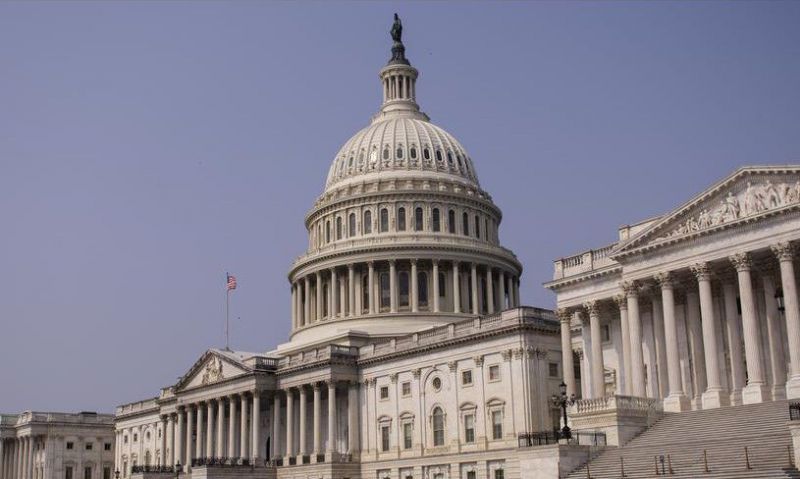
Senators passed National Defense Authorization Act, an annual must-pass bill setting policy for the Pentagon, by a vote of 87-13. The legislation must still be approved by the House.
The Senate approved a compromise $886 billion defense bill on Wednesday that will give service members the largest pay raise in more than two decades and invest in efforts to counter threats around the world.
Senators passed the National Defense Authorization Act, an annual must-pass bill setting policy for the Pentagon, by a vote of 87-13. The legislation must still be approved by the House but is set to raise basic pay for troops in January by 5.2%, the biggest hike in 22 years.
The pay increase was one item to which lawmakers in the Senate and House agreed. The chambers this year passed starkly different versions of the defense bill, with the House padding its legislation with divisive social issues. Those provisions were largely stripped out after months of bipartisan negotiations.
“I’m pleased the final version of the NDAA has many of the strongest provisions of the Senate’s original bill,” Senate Majority Leader Chuck Schumer, D-N.Y., said in remarks before the vote. “We’ll give our service members the pay raise they deserve.”
Junior troops struggling with finances could see additional benefits under a measure that allows the Defense Department next year to give a monthly bonus to ranks E-6 and lower.
A Republican effort in the House to give the same service members a 30% raise was left out of the final defense bill. Other conservative priorities that included overturning the Pentagon’s travel and leave policy for troops seeking abortions and other reproductive health care were also scrapped.
Sen. Joni Ernst, R-Iowa, tried to resurrect a proposal to end the abortion access policy on Tuesday but was unsuccessful. Republican opposition to the policy led to a 10-month blockade of senior military promotions by Sen. Tommy Tuberville, R-Ala., that Ernst played a role in ending this month.
Republicans said they were proud of the provisions that they were able to push through into the final defense bill, most notably the reigning in of the Pentagon’s diversity, equity and inclusion programs.
“I’m pleased that this year’s NDAA takes measures to keep our military’s focus on war fighting and not the dissemination of woke ideologies by Pentagon bureaucrats,” said Sen. John Thune, R-S.D.
The bill is “laser-focused” on threats the U.S. faces, including strategic competition with China and Russia and the danger from Iran, North Korea and violent extremism, said Sen. Jack Reed, D-R.I., chairman of the Senate Armed Services Committee.
Lawmakers worried about China’s growing Navy rejected the Pentagon’s request to shrink the U.S. fleet, instead authorizing investment in new ships. They also approved the transfer of Virginia-class submarines to Australia as part of a historic security pact that will create a new fleet of nuclear-powered submarines to counter China’s influence in the Pacific.
The bill expands the U.S. military’s presence in the Indo-Pacific region and provides resources for training, advising and building up the capacity of the military of Taiwan, the island nation that China considers its rightful territory. Ukraine will also continue to receive military support through the Ukraine Security Assistance Initiative, a longstanding program that purchases equipment and weapons for Ukraine.
Multiple measures in the bill tackle weapon supply issues caused by Russia’s invasion of Ukraine last year. They aim to replenish the Pentagon’s stockpiles and help the U.S. maintain “our own state of readiness and the deterrent effect that goes along with it,” said Sen. John Cornyn, R-Texas.
“Simply put, the NDAA will support our troops, strengthen our military readiness and implement a raft of reforms to strengthen national security,” he said.
- Security

